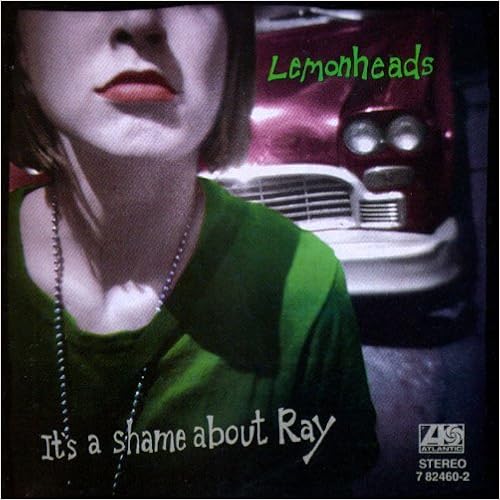That's right, but not that one, not even a cover of that version, but as good a taster as any to the remarkable and largely unsung talent of Asaf Avidan, huge in Israel, less well known elsewhere. Diminutive in stature, odd of voice, he, for it is a he, has put out a steady stream of recordings these past fifteen years. Perhaps, in this week of reawakening mayhem in the Gaza, let's turn to something that feels more a source for unity than division.
Still barely into his forties, he could loosely, very loosely, be described as a combination of Prince and Sinead O'Connor, both in chameleonic voice and appearance, but with more than a hint of Leonard Cohen in his searching and erudite lyricism. With his first band, the Mojos, he set Tel Aviv alive in the early noughties, the band's debut going gold, one of the highest selling independent releases in the history of the Israeli record industry. This was 2008's The Reckoning, the band having formed following the earlier good reception of a debut solo EP, a couple of years earlier, Now That You're Leaving. A further couple of releases attempted to build on that success, but Avidan felt constrained by the limitations of the standard guitars/bass/drums format and put the band on the bumpers in 2011. Then fortune came smiling, as one of the singles from The Reckoning became picked up by German DJ and producer, Wankelmut, he remixing Reckoning Song, now entitled One Day/Reckoning Song into a veritable dance floor smash. (I feel here I should mention the role of my wife in all and any of my knowledge of this artist, she drawing this song to my attention, when we were courting, her riposte to my mixtapes of Jackie Leven and Fairport. Thank You for that!) Having earlier dented the mainland Europe market place with the Mojos, this broke him to much wider audiences, gouging platinum sales across that territory, a number on in Germany, Italy and the Netherlands. The UK, traditionally resistant and sceptical to "European" pop cultures, even caught on, the remix attaining a creditable 30 on the singles chart. The Reckoning LP also bounced back into circulation on the back of it.
This timing was ideal, coinciding with the release of his first full length solo project, Different Pulses, an astonishing and powerful collection of songs, with a range of subjects and a volley of influences, all dressed within his extraordinary vocal timbre. Even if acclimatised via the Wankelmut, it is still quite a shock to hear his voice, the resonance unlike any other, dripping with emotion. Off putting, even, at first hearing, I can only exhort you to work with it, as the songs seep into your consciousness, the realisation coming that they could be tackled in no other way, so perfectly aligned they are to the forceful drive of delivery. A few listens and you will find yourself singing along. Or trying to.
Again, Europe continued to be his main playground, selling the strongest in France, an identifiable link with the french tradition of chanson sometimes apparent in his style of writing, the subject matter and dense verbiage of the lyrics. A second album, Gold Shadow, 2015, seemed a slight step back, a little more orthodox in the rock instrumentation, perhaps understandably, he having spent the interim three years on the road, playing and promoting. The featured track headlining this piece comes from it, hinting at a morph of both Phil and Ronnie Spector. Followed by 2017's The Study on Falling, this has him restoring some of the melancholic angst of Different Pulses, the rawness of the songs reproducible in concert, even when just himself, a guitar, a harmonica and some effects pedals. His most recent release Anagnorisis, emerged in lockdown, last autumn. An interview in American Songwriter gives some clue as to what the listener should expect. Possibly his most diverse set of songs yet.
Should you read the above interview, it will become apparent what a thoughtful, and possibly tormented, soul he possesses. This aspect has certainly courted controversy in his homeland. As the son of a diplomat, with an upbringing in Jamaica and in New York, he has observed the Israeli ethos from both sides. When, in a French newspaper, in 2015, he stated he felt himself not to be an Israeli, but rather to be from Israel, this did not endear him to all his compatriots: "In every interview I gave from the first second I always said I am not an Israeli artist, but an artist from Israel. I am not coming to represent Israel. I am not a politician. I am not a diplomat. And as a son to diplomats I never wanted to be one". Within the hotbed of Israeli politics, this was understandably ill-received by other than his fanbase, possibly expanding it, whilst alienating further his elders.
He remains broadly little known in the UK, and probably a good deal less even in the States. I think this a shame, he deserving of a wider audience. This is probably not helped by the difficulty in getting hold of tangible product, his latest record as yet only available via mail order from Israel, with p&p somewhat off-putting. This, together with a fading commercial mass market appeal means that until any major is prepared to pick him back up, he may have to remain niche.
In the meantime, try this, In a Box, available via Bandcamp, a memento of his live repertoire. Recorded in 2012, after he had put the Mojos to bed and before his emphatic solo launch. In a Box II, further material, alone and in a studio, in real time, this time from 2018, is also available for download, and is where the final clip, above, comes from.






























































































































































































































































































































































































